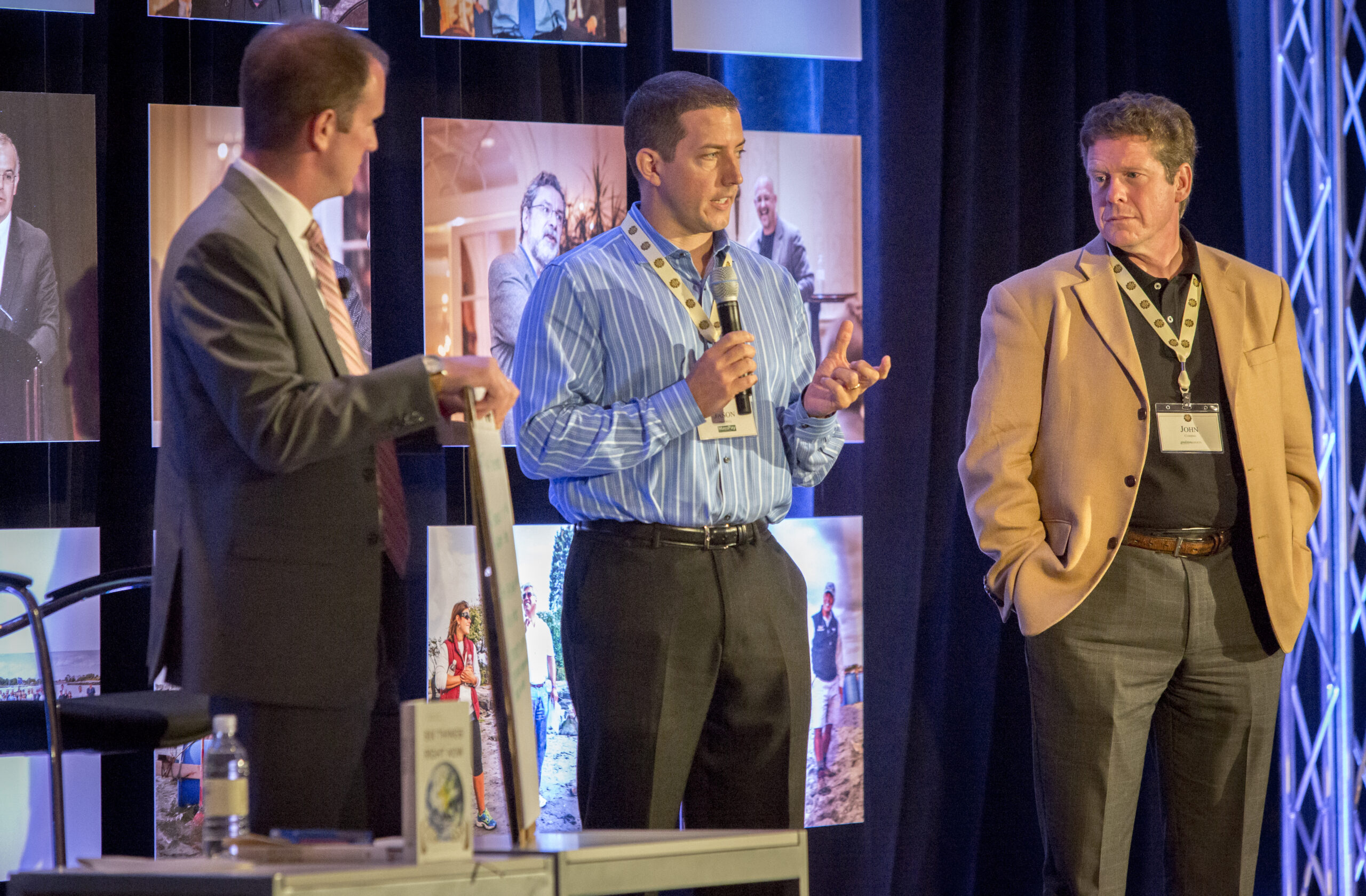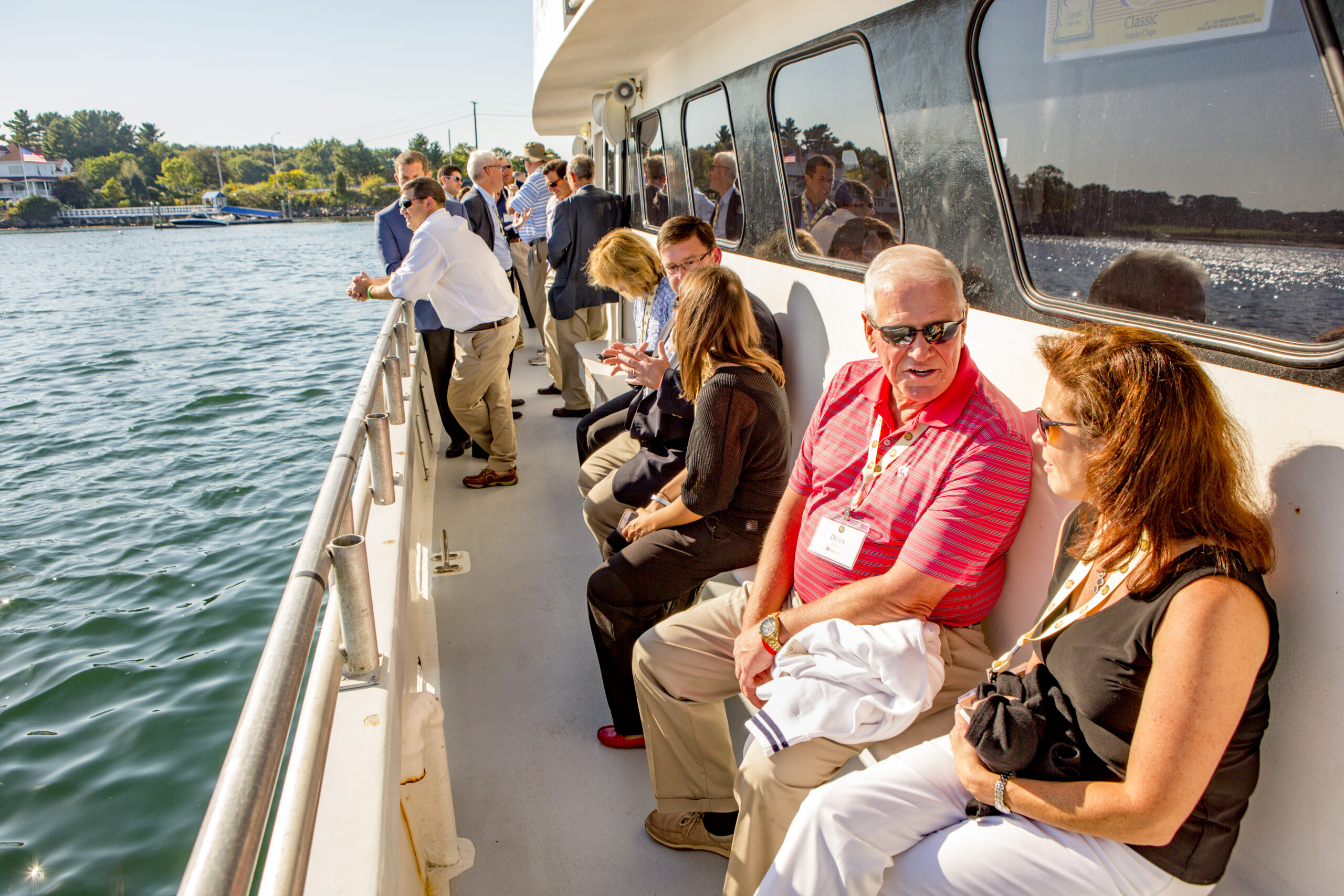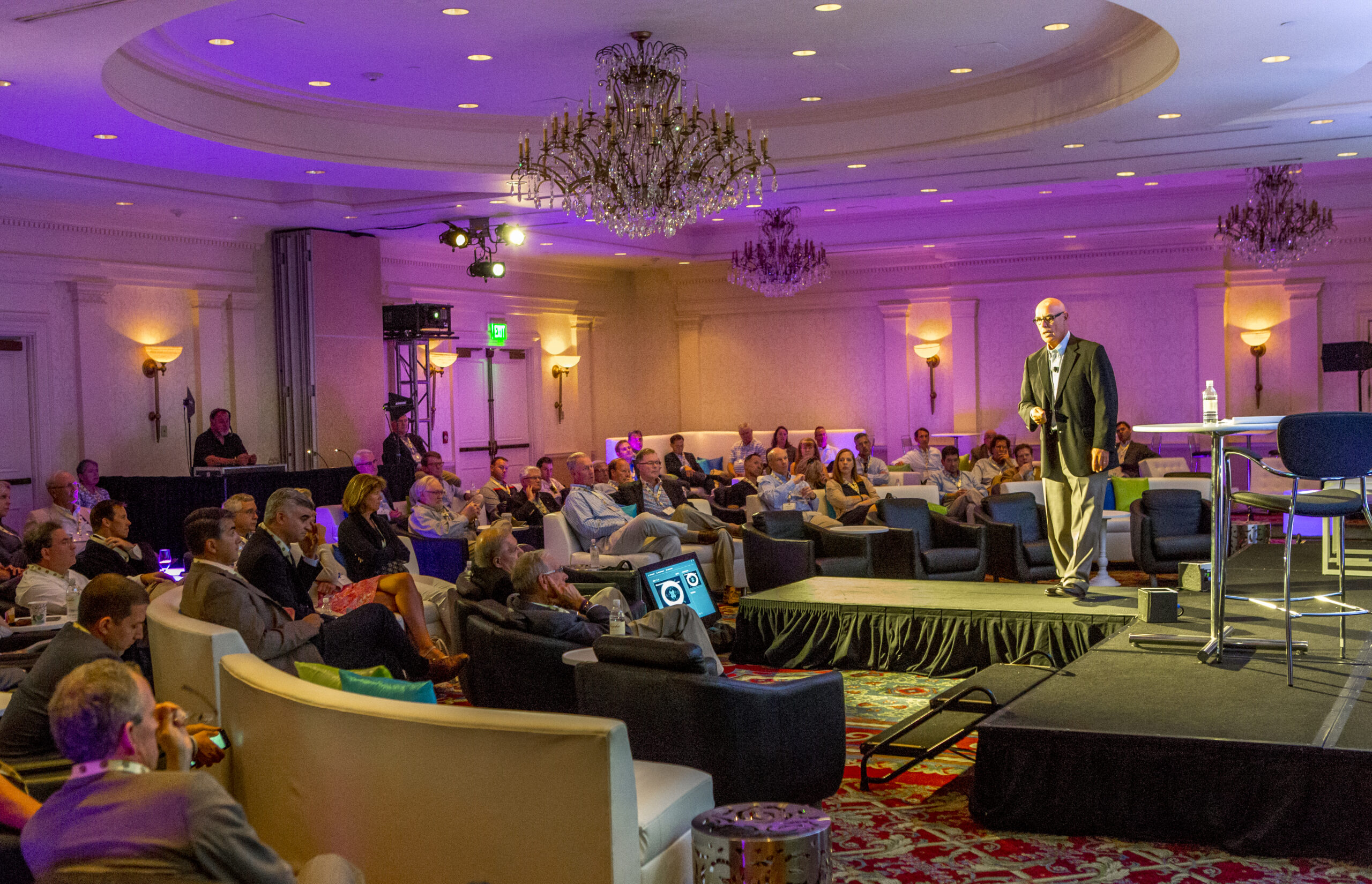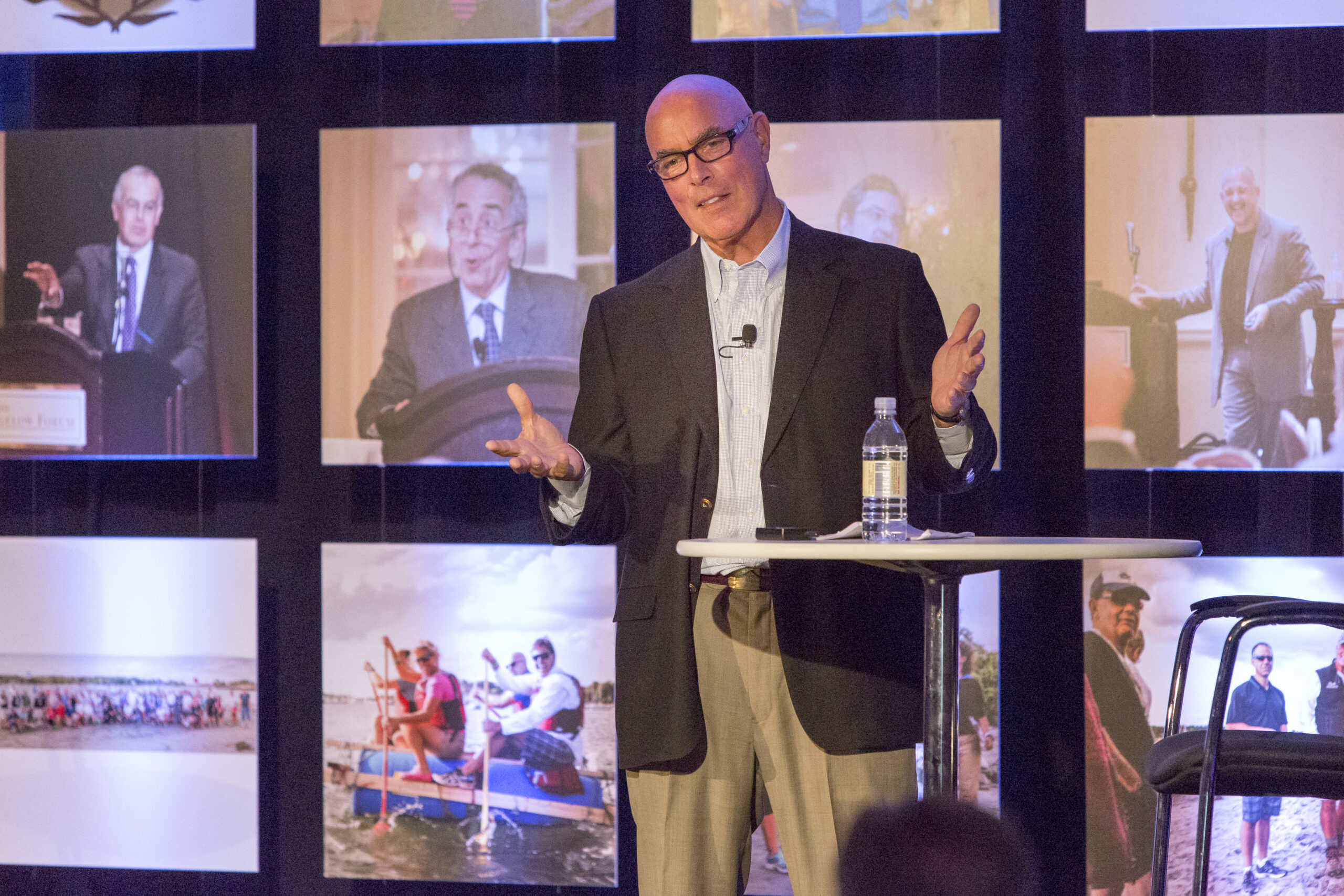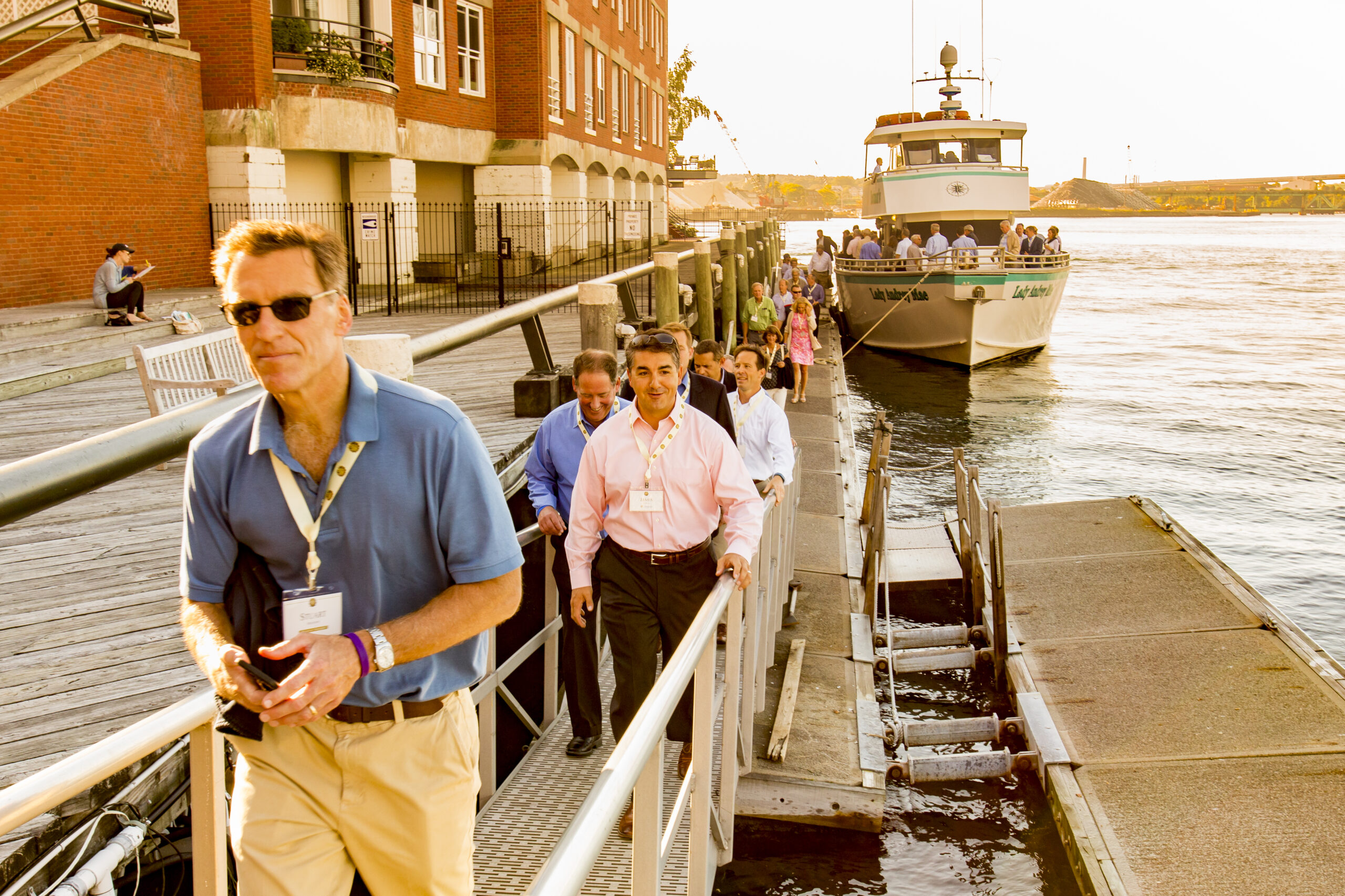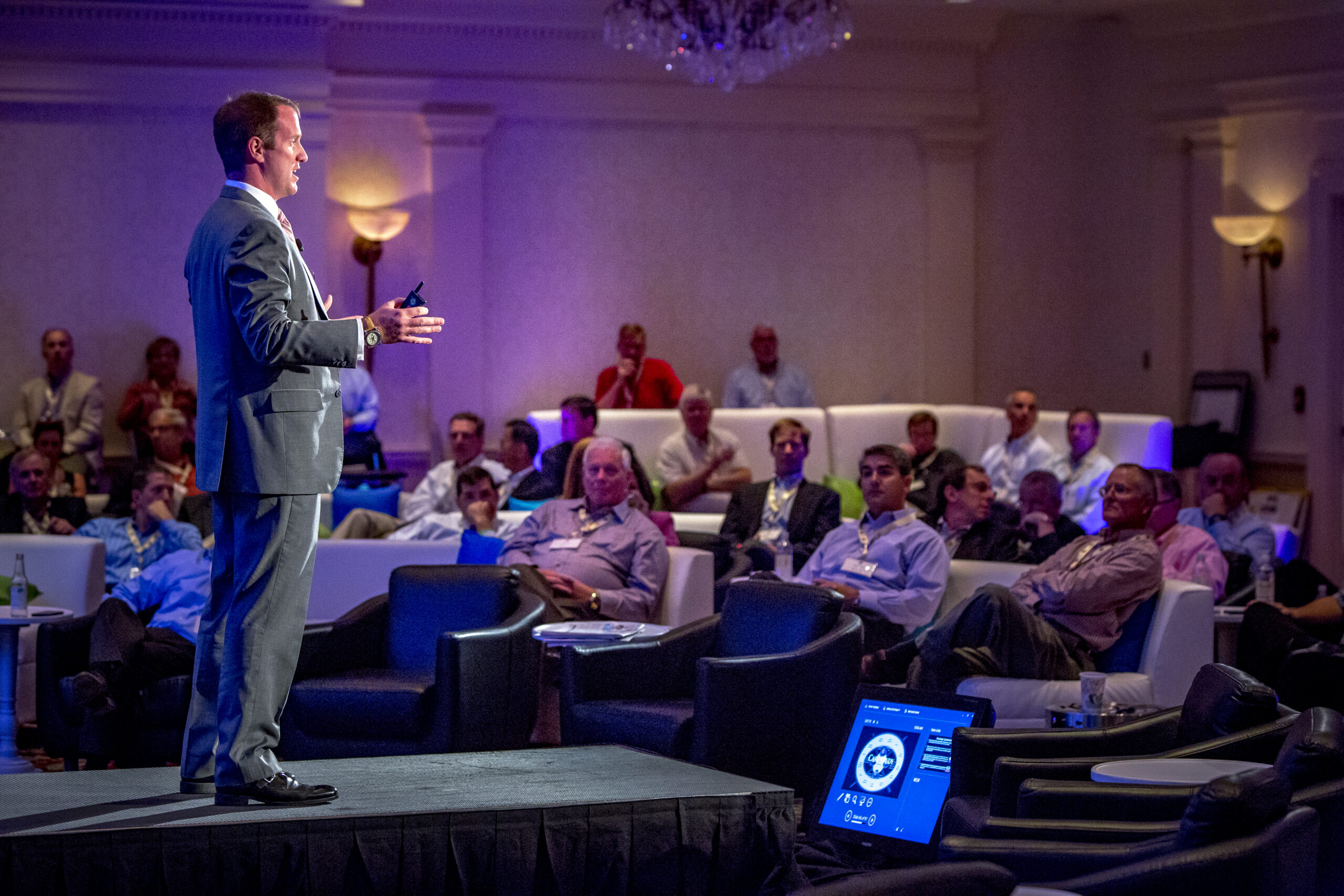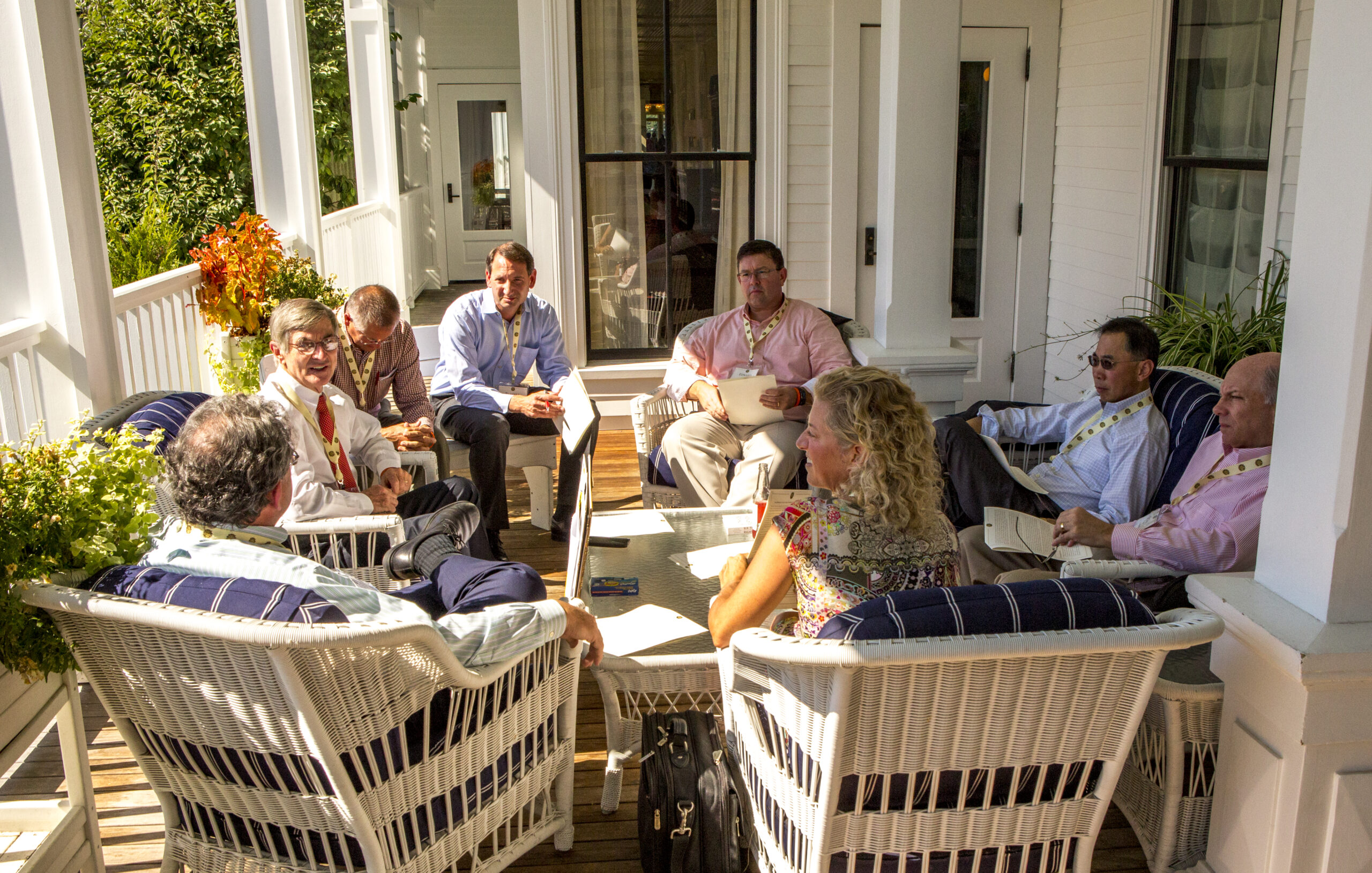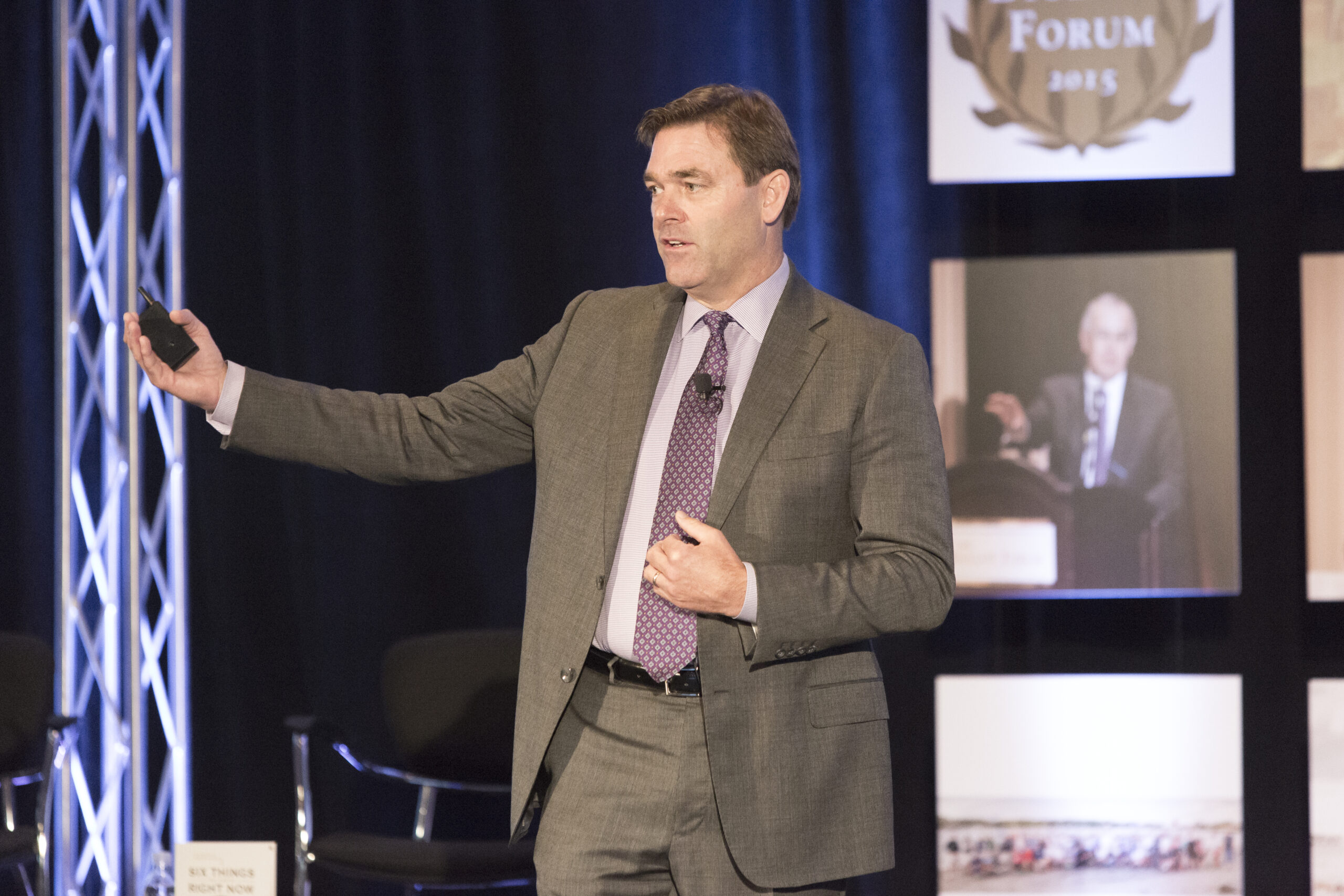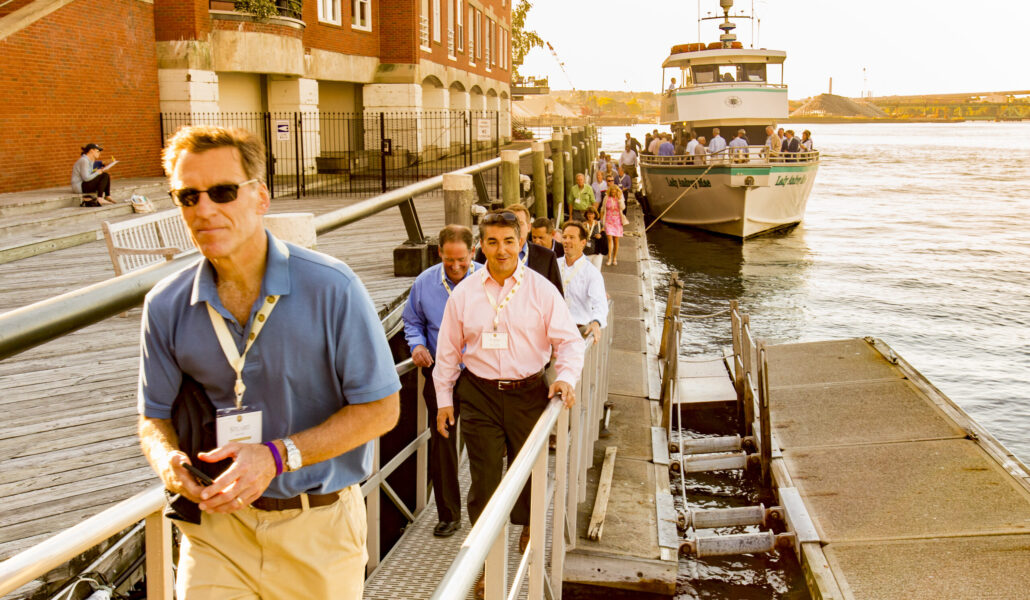
Remember the “Bad Ole Days”, when investors proudly informed us their Golden Rule was “He who had the gold makes the rules”?
The 2015 Bigelow Forum, held September 17 and 18, focused on the long arc “Powershifts” affecting Entrepreneur Owner-Managers (EOMs). In today’s private transaction market, who has the power – the investor or the business owning EOM? Is the Powershift for real? What do EOMs believe? What do expert advisors believe? If the power has shifted to the EOM, are they (and are we as their expert advisors) behaving like it? These are a few questions addressed at this year’s Forum.
Thursday, September 17
ENGAGE:
Pete Worrell opened the Bigelow Forum with an overview of some thought leadership co-created with participants in the Forum in previous years. Simon Sinek’s Golden Circle theory emphasizes that the center of the circle — the “Why” — is often overlooked. Pete then moved into a discussion addressing the Long Arc Powershift – in summary, proposing that over a short period of time (since 1980), we have witnessed power shifting away from the bureaucratic environment and toward the entrepreneurial environment, as well as away from the investor and toward the EOM.
Given this shift, we believe the EOM, in conjunction with their advisors, has the ability to be a proactive thinker about their someday capital gain event. This session ended with the Formula 1 Pit Stop video, which was an excellent example of Powershift over time and featured a dramatic time compression of a race car pit crew from 1950 to 2013.
CONNECT:
Forum participants took part in a relationship-building exercise. We traveled via The Lady Audrey Mae from the Wentworth by-the-Sea Resort to Bigelow’s offices at One Harbour Place in Portsmouth’s inner harbor to attend an afternoon cocktail party at Bigelow’s newly renovated headquarters. This event was followed by dinner at the Wentworth.
Friday, September 18
ACTIVATE:
Pete opened the second day of the Forum with an introduction to Bigelow’s new book, If You Want to Earn a Capital Gain Someday, Six Things You Can Do Right Now. All Forum participants received copies. The day’s sessions focused on the Strategy and Management teams, two of the six chapters covered in the book.
SESSION 1: STRATEGY
“Who has the time to sit down and refine business strategy when we are all too busy with customers, their problems and new opportunities?” Rob MacLeod and Stephen McGee opened the session with a general discussion of strategy. This discussion touched on topics such as differentiation vs. low cost, how diversification too far away from your strategy can destroy value and the ability to state your strategy in one sentence. Participants in the audience who consulted on strategy were asked to give a one-sentence descriptor of strategy.
Mr. Rob Schwager, the former majority owner of Q-Centrix, was joined by Rob and Stephen on stage to present a strategy-based case study. Rob Schwager gave an overview of his background, his company and his decision on timing for a capital gain event. Rob stated that Rob Schwager’s strategy was the best he had ever seen but felt he would benefit in the marketplace by pulling forward a third-party market study.
SESSION 2: MANAGEMENT TEAM
David Linton began the second session with a summary of the evolution of the EOM and quickly moved into the session’s theme on the importance of alignment of interest between the EOM and their management team. Warren Widener then introduced a fictitious case study with focusing questions for a group breakout session. In this study, Bob Leopold, sole owner of HeirLogic, a business he operated with his sons, engaged in a conversation with his legal counsel regarding his someday capital gain event. Bob’s reluctance to engage his management team in his plans for the next best investor was the topic of focus in breakout group discussions with EOMs and advisors.
Following the breakout, David introduced a survey of EOMs conducted by Bigelow. This survey included EOMs who had already completed their capital gain event, were actively planning for their event or saw their event in the future. It included EOMs with all governance models other than those fully owned by PE firms. The purpose of this survey was to try to understand the behavioral consistencies of EOMs in deciding whether, when and how to incent and align interest with EOMs. We are hopeful that the results of this survey make us thoughtful about what we, as advisors, can do to assist EOMs in this process. David then compared the results of the survey with live polling results from our participants. In conclusion, the old Bigelow proverb, “The minute you realize you want to have a capital gain event, bring your managers into the decision AND align interests,” is essential to today’s EOMs.
INTEGRATE:
Pete concluded the 2015 Bigelow Forum with a review of the Hi Phi concept that was co-created with 2014 Bigelow Forum participants. He then introduced a similar concept for advisors to EOMs. The advisors to EOMs Hi Phi concept build on our Community of Advisors IP, concluding that the integration of information of all advisors, along with the EOM’s spouse, increases the quality of experience. Lastly, Peter reiterated the Powershift to EOMs and encouraged using Six Things as a resource for EOMs and their advisors.

